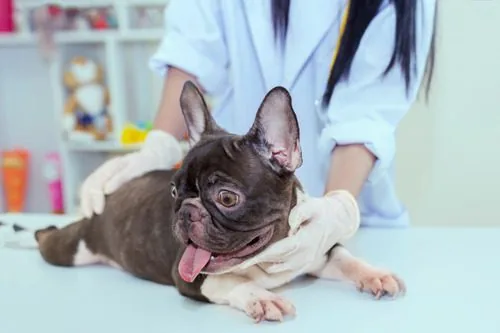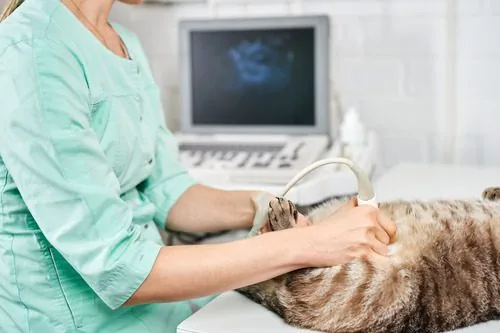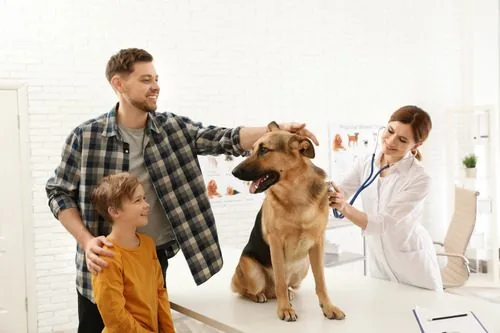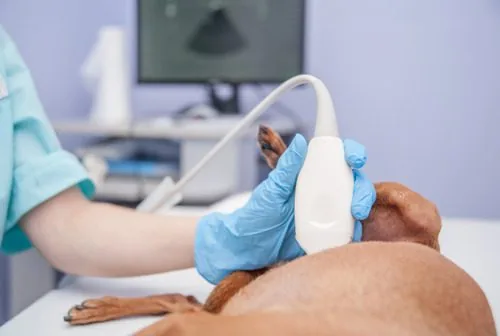Dog MRI: Everything You Need to Know
When your dog isn’t feeling their best, understanding what’s happening beneath the surface can feel like solving a puzzle. For pet owners, seeing your furry companion struggle without clear answers is heart-wrenching. That’s where advanced diagnostic tools like MRIs come in, offering a non-invasive way to get a detailed look inside your dog’s body. At Veterinary Healthcare Associates in Winter Haven, FL, we’re proud to provide dog MRI services that can uncover critical information about your pet’s health. Whether it’s identifying a neurological issue or evaluating a soft tissue injury, MRIs help us see what other tools can’t—giving your dog the best chance at a healthy, happy life.
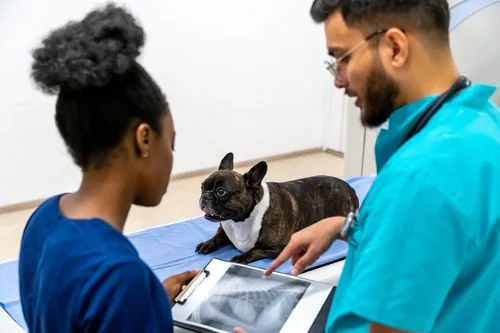
What is a Dog MRI?
A dog MRI is a non-invasive imaging procedure that provides detailed pictures of your pet’s internal structures, including the brain, spinal cord, muscles, and joints. Unlike X-rays or CT scans, MRIs use powerful magnetic fields and radio waves to create images without exposing your dog to radiation. Veterinarians use MRIs to diagnose complex conditions that cannot be easily identified through physical exams or other diagnostic tools. This technology is particularly helpful for examining soft tissues, such as the brain, spinal cord, and internal organs, making it invaluable for certain neurological and orthopedic conditions.
When Does a Dog Need an MRI?
An MRI is typically recommended when other diagnostic tools, like blood tests or X-rays, cannot pinpoint the cause of your dog’s symptoms. Common reasons a dog might need an MRI include:
- Neurological symptoms such as seizures, balance issues, or unexplained behavior changes.
- Spinal problems like suspected herniated discs, spinal cord compression, or trauma.
- Soft tissue injuries involving ligaments, tendons, or muscles.
- Tumor evaluation, particularly in the brain or other soft tissues.
- Chronic pain that cannot be identified through other means.
If your dog’s veterinarian believes an MRI is the best way to diagnose or evaluate a condition, they will explain how it can benefit your dog’s overall care plan.
How Does a Dog MRI Work?
A dog MRI relies on magnetic fields and radio waves to generate highly detailed images. During the procedure, your dog is placed inside a large cylindrical machine that scans specific areas of their body. Because the process requires absolute stillness for accurate imaging, your dog will be under general anesthesia throughout the procedure. This ensures they remain comfortable and motionless while the MRI machine captures precise images. The procedure for a dog MRI is as follows:
- Your dog will undergo a pre-anesthetic evaluation, including blood work, to ensure they are healthy enough for anesthesia.
- A trained veterinary team administers anesthesia and monitors your dog throughout the procedure.
- Your dog is positioned in the MRI machine, and the scan begins. The process can take anywhere from 30 minutes to two hours, depending on the area being examined.
- Once the scan is complete, your dog is monitored as they wake up from anesthesia.
What Are the Benefits of an MRI for Dogs?
A dog MRI offers unparalleled diagnostic capabilities, making it a critical tool in veterinary medicine. Some key benefits include:
- Detailed Imaging: MRIs provide high-resolution images of soft tissues that are not visible with X-rays or CT scans.
- Accurate Diagnoses: This level of detail allows veterinarians to identify complex conditions with greater precision.
- Non-Invasive: The procedure does not require surgery or radiation exposure, making it a safer option for many pets.
- Improved Treatment Plans: An MRI can guide your veterinarian in creating a targeted treatment plan based on a clear diagnosis.
How to Prepare Your Dog for an MRI
Before your dog’s MRI appointment, your veterinarian will provide detailed instructions to ensure the procedure goes smoothly. Here are some common steps involved in preparation:
- Your dog will likely need to fast for several hours before the MRI to reduce the risk of complications from anesthesia.
- Inform your veterinarian about any medications your dog is taking. They may recommend temporary adjustments to certain prescriptions.
- These tests may include blood work, X-rays, or other evaluations to confirm your dog’s fitness for anesthesia.
- Bring your dog’s favorite blanket or toy to the appointment to help them feel more at ease during recovery.
What to Expect During and After the Procedure
During the MRI, your dog will be under the care of a skilled veterinary team. While the procedure is taking place, you may be asked to wait in a designated area. Once the imaging is complete, your veterinarian will review the results and discuss next steps with you. After the MRI, your dog may feel groggy as they recover from anesthesia. Most dogs bounce back quickly, but it’s essential to provide a quiet and comfortable space for them to rest at home. Your veterinarian will let you know what signs to watch for and whether a follow-up visit is needed.
Post-Procedure Tips:
- Offer small amounts of water and food once your dog is fully awake.
- Monitor them for any unusual behavior, such as vomiting or prolonged lethargy.
- Follow any specific care instructions provided by your veterinarian.
Supporting Your Dog’s Health Through Advanced Diagnostics
Dog MRIs represent a remarkable advancement in veterinary diagnostics, offering precise imaging that helps veterinarians make informed decisions about your pet’s care. If your dog is experiencing neurological issues, chronic pain, or an unexplained health problem, an MRI can be a valuable tool in identifying the root cause and developing an effective treatment plan. If you have questions about whether an MRI is right for your dog or want to schedule an appointment, call Veterinary Healthcare Associates in Winter Haven, FL, at (863) 324-3340. Our team is here to provide the guidance and support you need to make the best decisions for your dog’s health.
Recent Posts
Why You Should Build Your Veterinary Career at Veterinary Healthcare Associates
Why You Should Build Your Veterinary Career at Veterinary Healthcare Associates Embarking on a veterinary career is…
French Bulldog Nose Surgery: Everything You Need to Know
French Bulldog Nose Surgery: Everything You Need to Know French Bulldogs are adored for their playful personalities…
Veterinary Diagnostic Imaging: How It Keeps Pets Healthy
Veterinary Diagnostic Imaging: How It Keeps Pets Healthy When it comes to protecting your pet’s health, veterinary…
How Much Does Hyperbaric Oxygen Therapy (HBOT) for Dogs Cost?
How Much Does Hyperbaric Oxygen Therapy (HBOT) for Dogs Cost? When your dog is facing a health…
Cat Sonogram & Ultrasound: Everything You Need to Know
Cat Sonogram & Ultrasound: Everything You Need to Know Cats have a way of concealing discomfort, making…
About Veterinary Healthcare Associates
Veterinary Healthcare Associates in Winter Haven, FL, was established over 30 years ago as Maxwell Animal Clinic by Dr. John Maxwell. Maxwell Animal Clinic was a one-doctor general practice offering preventive care, dentistry, and standard surgical services to the community. As the years passed, Maxwell Animal Clinic evolved into a thriving 10-doctor general, specialty referral, and emergency veterinary practice.


